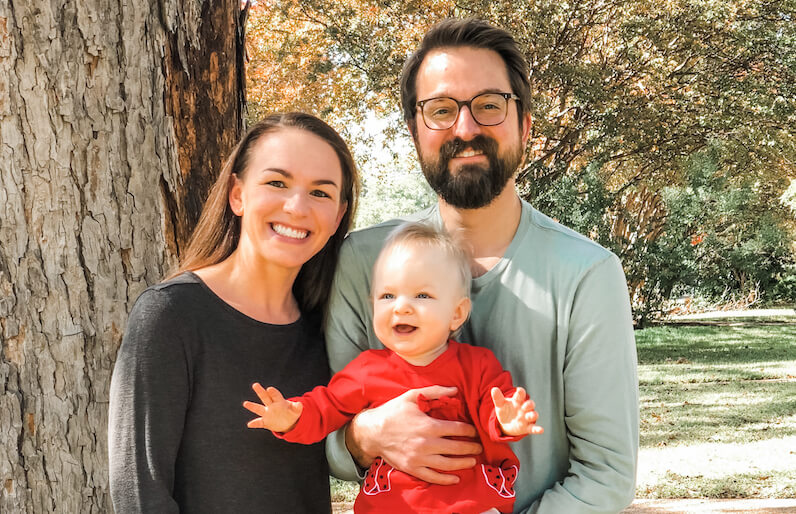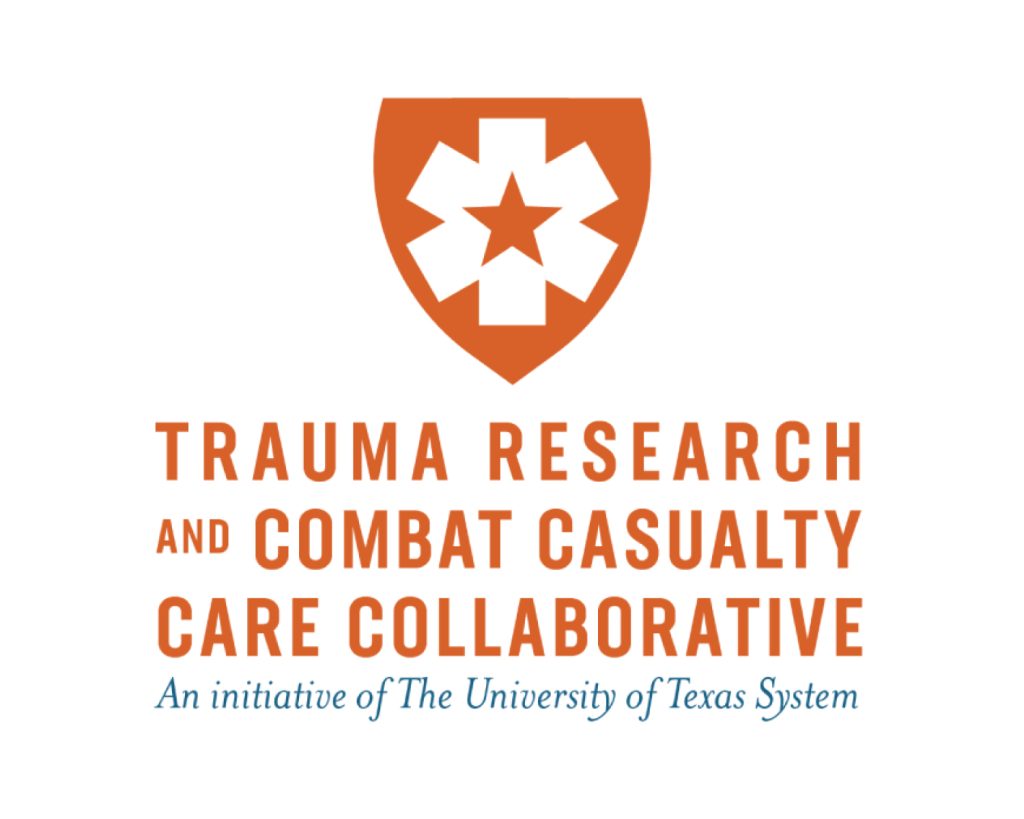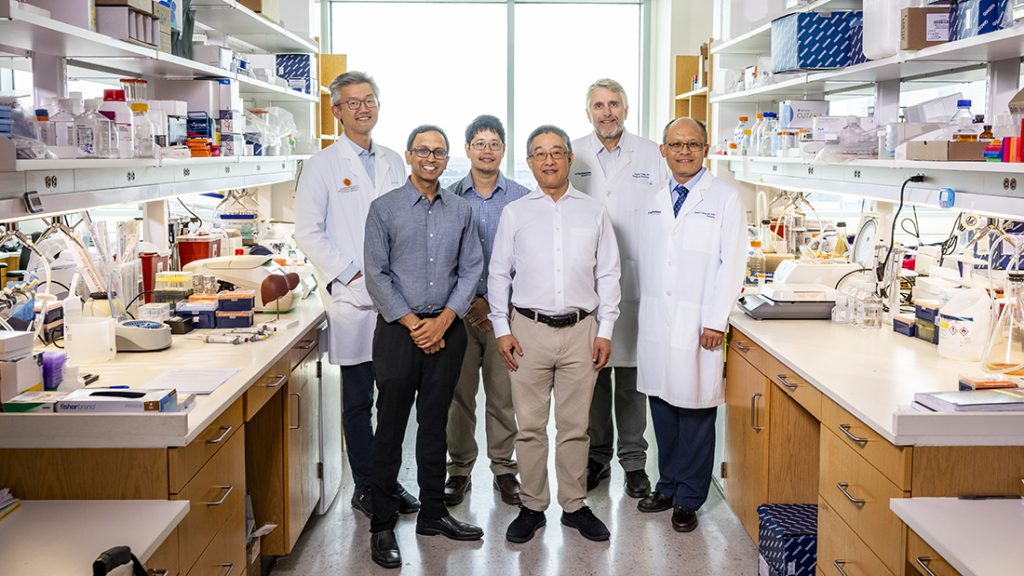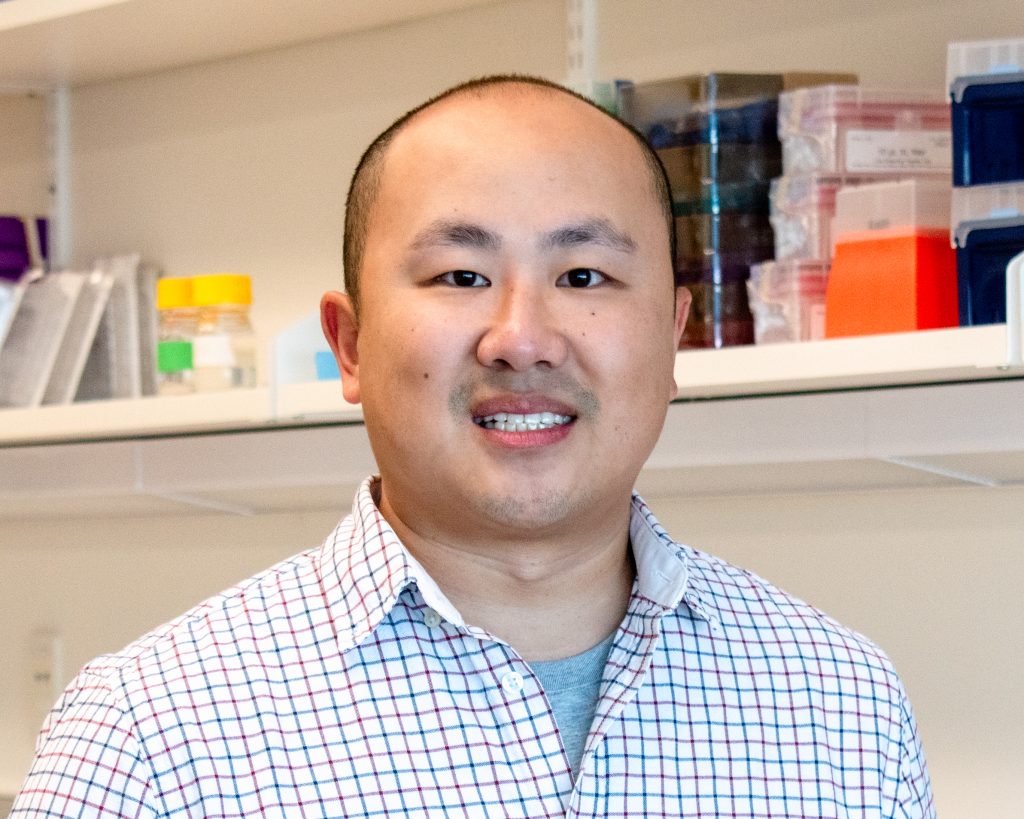Children’s Medical Center Research Institute (CRI) at UT Southwestern recently recruited Dr. Sam McBrayer to become the institute’s eighth faculty member and principal investigator. His lab will focus on understanding pediatric and adult brain cancers with the ultimate goal of discovering new treatment options. Dr. McBrayer earned his Ph.D. in cancer biology from Northwestern University’s Feinberg School of Medicine and was an American Cancer Society Postdoctoral Fellow at the Dana-Farber Cancer Institute and Harvard Medical School. Since joining the CRI in July of 2019, Dr. McBrayer has received awards from the National Cancer Institute and the Cancer Prevention and Research Institute of Texas. Dr. McBrayer recently shared his thoughts about joining the CRI and the goals he hopes to achieve with his research
Why did you decide to join CRI?
I was fortunate to interview at a number of institutions with strong biomedical research programs, but three factors really set CRI apart from the others.
First, the investigators that comprise CRI are truly world-class, and each are addressing important research problems. They represent exactly the type of scientists I hoped to have as colleagues when I began my search for a faculty position. Second, the dominant areas of research within CRI align closely with my own interests in metabolism, epigenetics, cancer biology, and stem cell biology. Third, during my visits to the institute Dr. Morrison conveyed his vision of allowing CRI faculty members to “swing for the fences” in their research, which really resonated with me.
The motivation for my work is to address fundamental questions in cancer biology to substantially expand our understanding of this disease and devise innovative ways to combat it. I am certain that the ethos and support in CRI will allow me to pursue ambitious, impactful avenues of investigation that could meaningfully change the way we think about and treat cancer.
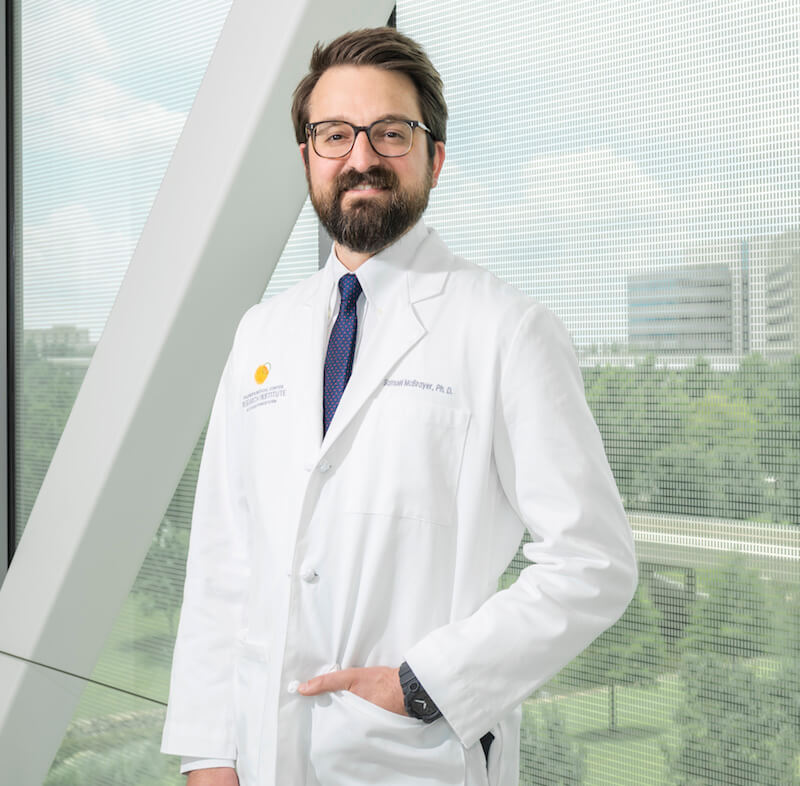
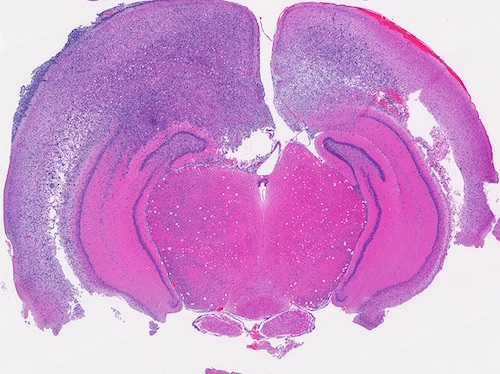
What are you researching and why is it important?
We are interested in learning how changes in cellular metabolism promote cancer development and allow tumor cells to adapt to stress. We study a subset of malignant brain tumors, known as gliomas, that are driven by mutations in genes that produce metabolic enzymes. Until recently, it was thought that metabolic differences between normal and tumor cells mostly occurred as a consequence, rather than a cause of, cancer transformation. The discovery that metabolic enzyme mutations can initiate cancer formation significantly changed our thinking about this relationship and prompts important questions about how altered metabolism promotes the initiation of cancer.
Our goal is to identify the metabolic mechanisms that push cells to become cancerous and find new ways to inhibit them in the context of brain cancer. Studying these mutations will help us discover fundamental connections between metabolism and other aspects of cell biology that are likely to control cancer formation in many different tissues. These insights hold great promise for the development of precision medicine-based treatments for patients with brain tumors, who have a limited number of therapeutic options, and, by extension, for those with other types of cancer.
How do you expect your work will one day help patients?
Recently, we uncovered a defect in nitrogen metabolism caused by mutations in metabolic enzymes that can be exploited by combining a new anticancer drug with radiation therapy. We showed that this combination treatment strategy can selectively increase the sensitivity of brain tumor cells with these mutations to radiation therapy.
This strategy is exciting because it could allow patients to derive a greater benefit from standard radiation treatments or, alternatively, could allow clinicians to use lower doses of radiation in combination with this drug to achieve the same result with fewer side effects. The National Cancer Institute recently decided to fund a clinical trial to test our treatment strategy, and we are hopeful that this new therapeutic approach will lead to better outcomes for brain tumor patients.
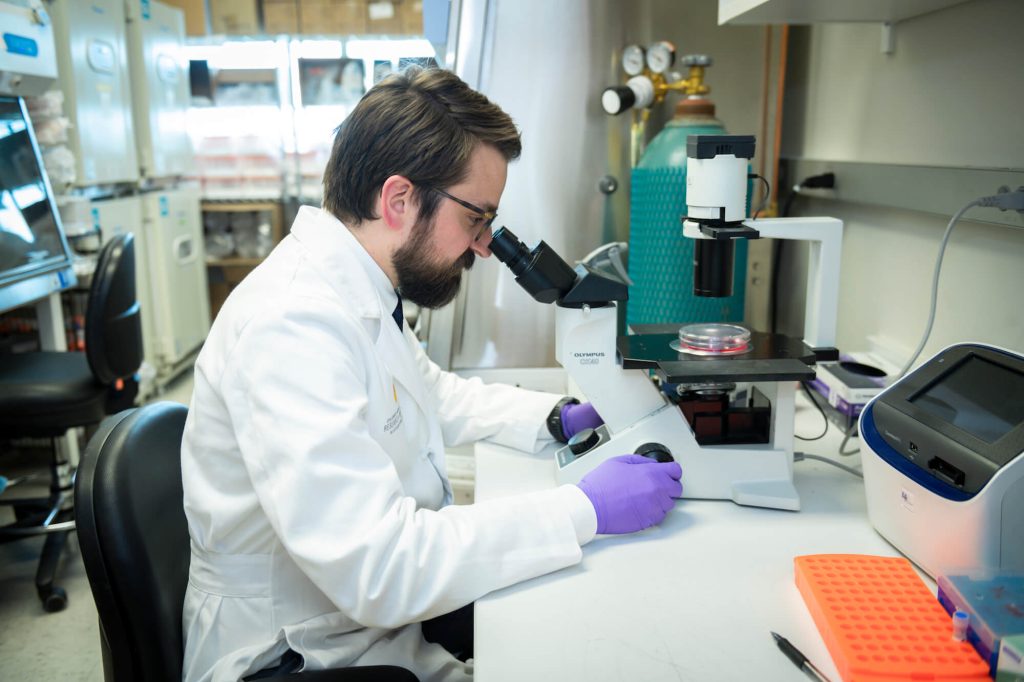
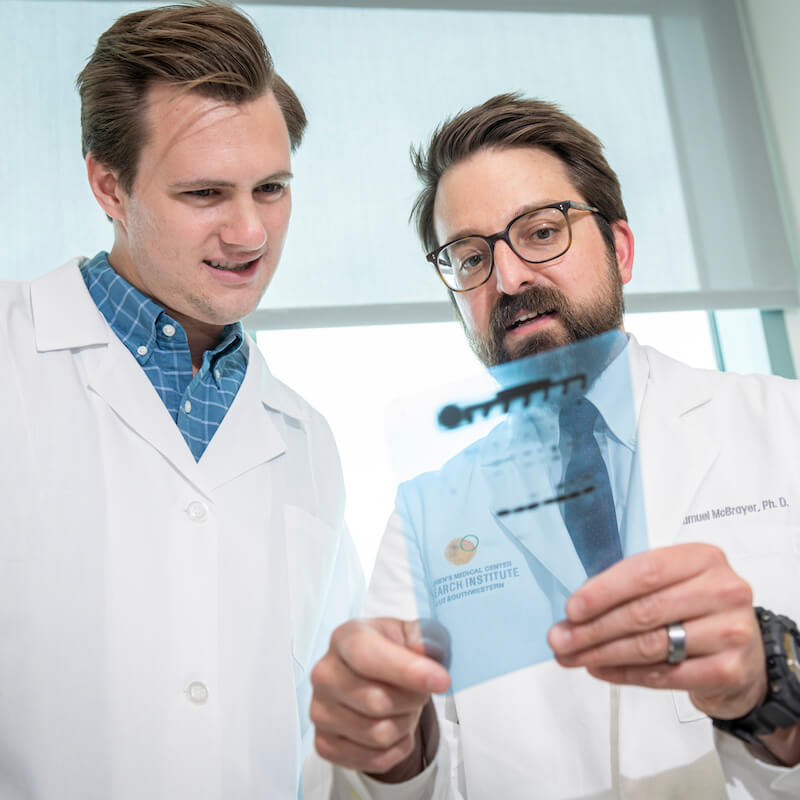
What lessons have you learned along the way that might benefit others pursuing a career in science or medicine?
Individual experiments associated with any research project have a high probability of failing. This can be difficult to accept, especially for very successful students who represent some of the most promising future scientists.
I would urge early-career investigators to remain resilient during their training experiences and to appreciate that scientific research is an inherently difficult endeavor. Perseverance is one of the key qualities that determines a scientist’s success.
What do you like to do when you’re not in the lab?
I try to maximize time with family and friends when I’m not in the lab, especially with my wife Molly and our 9-month old daughter Sierra. I love food, so I cook frequently and enjoy exploring new restaurants and cuisines. I also enjoy spending my time being active and outdoors. I like hiking, running, biking, fishing, and skiing, among other activities.
